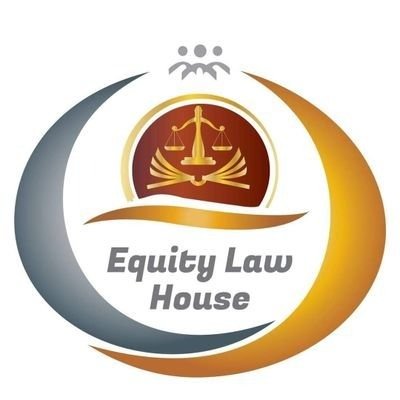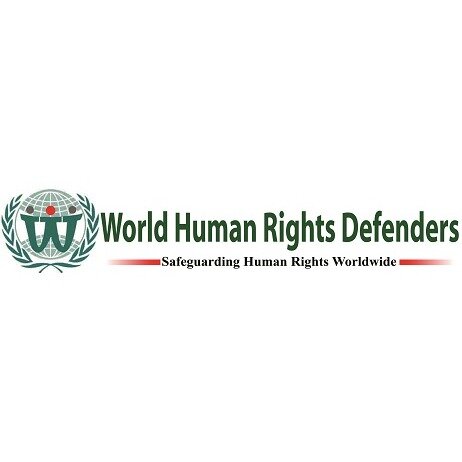Best Faith-Based Law Lawyers in Bangladesh
Share your needs with us, get contacted by law firms.
Free. Takes 2 min.
Or refine your search by selecting a city:
List of the best lawyers in Bangladesh
About Faith-Based Law in Bangladesh
Faith-Based Law in Bangladesh refers to the application of religious legal principles in governing certain aspects of society, primarily personal status laws such as marriage, divorce, inheritance, and adoption. Bangladesh, predominantly a Muslim-majority nation, primarily incorporates principles from Islamic Sharia law alongside its secular legal framework. Hindu, Buddhist, and Christian communities are also permitted to follow their respective religious laws in personal matters, supported by the country's constitution and legal system. These laws coexist with civil laws, providing individuals the right to choose the law that governs their personal affairs based on their faith.
Why You May Need a Lawyer
Individuals may require legal assistance in Faith-Based Law in the following situations:
- Marriage and Divorce: Understanding the rights and obligations under religious and civil marriage contracts can be complex. In the case of divorce, navigating the process according to religious laws while acknowledging civil requirements can be difficult without proper legal guidance.
- Inheritance: Faith-Based Law often stipulates specific rules for succession and the distribution of assets that differ from civil laws. Legal advice ensures compliance with these rules while protecting one's rights.
- Child Custody and Adoption: Faith-Based legal systems may have distinct criteria for child custody and adoption, which can differ significantly from general civil law.
- Resolution of Disputes: Engaging a lawyer can be crucial when resolving disputes that involve faith-based guidelines, where understanding of both religious and civil law may be necessary.
Local Laws Overview
Faith-Based Law in Bangladesh involves several key aspects:
- Muslim Personal Law: This governs matters like marriage, divorce, maintenance, and inheritance among Muslims. It derives from Sharia and encompasses customary practices recognized by the state.
- Hindu Personal Law: Applies to marriages, separations, inheritance, and family relations within Hindu communities. Hindu Law in Bangladesh is based on customs and scriptures, adapted to modern contexts.
- Christian Personal Law: Christians in Bangladesh are generally governed by the Christian Marriage Act of 1872 for marriage, and the Divorce Act of 1869, alongside other laws, in personal affairs.
- Buddhist Personal Law: While less formalized, Buddhist communities operate primarily under customs and traditions save instances where secular laws apply.
Frequently Asked Questions
1. What is Faith-Based Law?
Faith-Based Law, also known as religious law, encompasses legal guidelines deriving from religious beliefs to govern personal matters like marriage, divorce, and inheritance, often operating alongside civil law in Bangladesh.
2. How does Faith-Based Law affect marriage ceremonies?
Faith-Based Law affects the procedure, conditions, and recognition of marriage ceremonies based on the religious affiliation of the parties involved-for instance, the requirement for a Nikah ceremony in Muslim marriages.
3. How are disputes resolved under Faith-Based Law?
Disputes may be resolved through faith-based arbitration, involving religious leaders or scholars, or through civil courts where religious principles are considered.
4. What role does the constitution play in Faith-Based Law?
The constitution of Bangladesh allows for religious freedom, thereby supporting the co-existence of Faith-Based Laws with secular laws to accommodate personal matters according to faith.
5. Are Faith-Based Laws mandatory?
While Faith-Based Laws apply to personal matters for individuals of certain faiths, individuals may choose to address these matters in civil courts if desired.
6. Can faith-based decisions be contested in civil courts?
Yes, decisions made under Faith-Based Law can be contested in civil courts if they conflict with constitutional rights or broader civil laws.
7. How does inheritance work under Faith-Based Law?
Inheritance laws vary by religion; for instance, Islamic inheritance dictates specific shares for heirs, emphasizing gender and lineage, which differ from civil inheritance laws.
8. How do I choose between Faith-Based and Civil Law?
Your choice may depend on personal beliefs and circumstances. Legal counsel can help to understand implications and make informed decisions.
9. How does Faith-Based Law address child custody?
Child custody decisions are made in consideration of the child's best interest while adhering to religious guidelines that prioritize parental responsibilities.
10. Can foreigners living in Bangladesh opt for Faith-Based Law?
Foreigners can choose Faith-Based Law if it conforms to their personal religious beliefs and is mutually recognized by both parties involved.
Additional Resources
For more information and assistance, consider reaching out to the following:
- Ministry of Religious Affairs: Government body overseeing religious matters, including Faith-Based Laws.
- Local Religious Courts: Often provide arbitration and rulings based on specific Faith-Based Law.
- Civil Legal Aid Services: Offer guidance on navigating both Faith-Based and civil legal systems.
Next Steps
If you need legal assistance in Faith-Based Law:
- Consult a Lawyer: Seek professional legal advice to understand your rights and obligations under the relevant Faith-Based Law.
- Prepare Documentation: Gather all necessary documents related to your legal concern, such as marriage certificates, legal notices, or wills.
- Understand Your Rights: Familiarize yourself with your faith's legal guidelines and how they integrate with national law.
- Utilize Legal Aid Resources: Contact legal aid organizations that specialize in Faith-Based Law for additional support.
Lawzana helps you find the best lawyers and law firms in Bangladesh through a curated and pre-screened list of qualified legal professionals. Our platform offers rankings and detailed profiles of attorneys and law firms, allowing you to compare based on practice areas, including Faith-Based Law, experience, and client feedback.
Each profile includes a description of the firm's areas of practice, client reviews, team members and partners, year of establishment, spoken languages, office locations, contact information, social media presence, and any published articles or resources. Most firms on our platform speak English and are experienced in both local and international legal matters.
Get a quote from top-rated law firms in Bangladesh — quickly, securely, and without unnecessary hassle.
Disclaimer:
The information provided on this page is for general informational purposes only and does not constitute legal advice. While we strive to ensure the accuracy and relevance of the content, legal information may change over time, and interpretations of the law can vary. You should always consult with a qualified legal professional for advice specific to your situation.
We disclaim all liability for actions taken or not taken based on the content of this page. If you believe any information is incorrect or outdated, please contact us, and we will review and update it where appropriate.
Browse faith-based law law firms by city in Bangladesh
Refine your search by selecting a city.

















